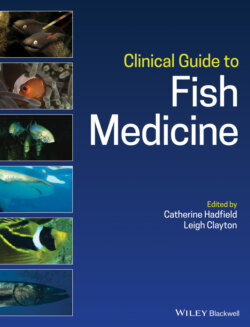Читать книгу Clinical Guide to Fish Medicine - Группа авторов - Страница 88
Introduction
ОглавлениеFish health is dependent on the aquatic environment; appropriate management of water parameters is critical. The term “water quality” is commonly used when discussing these parameters. At a minimum, water quality management typically encompasses temperature, salinity, nitrogenous wastes, pH, hardness, alkalinity, and dissolved gases. Other critical parameters include additional anions and cations, chlorines, heavy metals, turbidity, and the microbiome. These values are interdependent and should be evaluated together, along with the history and observation of the system and animals.
The goal of this chapter is to provide a concise review of major parameters, including common sampling and testing methods, target values, and major interactions. Values should be compared to the known requirements for the species in the system; it is important to bear in mind that the preferences of different species held in the same habitat may vary. The parameters change over time and both recent values and historical trends need to be considered. Rapid changes are more likely to negatively impact health than slow changes, and are more likely in smaller volumes of water. Management options for water quality problems (e.g. low dissolved oxygen or high ammonia) are covered in Chapter C1.
